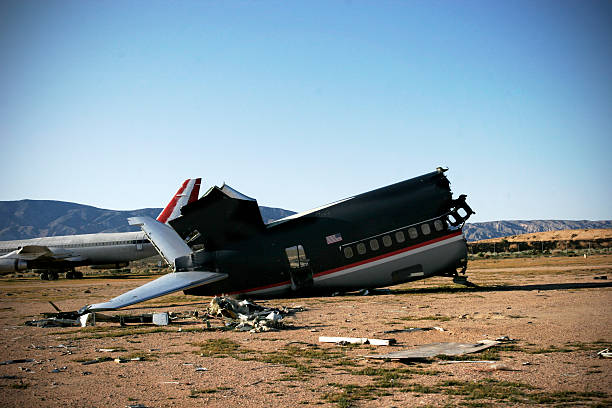The Azerbaijan Airlines crash on Christmas Day near Aktau, Kazakhstan, has ignited significant speculation and controversy. Preliminary investigations suggest “physical and technical external interference,” fueling allegations of Russian involvement. The tragedy claimed 38 lives out of the 67 passengers and crew onboard, including individuals from Azerbaijan, Russia, Kazakhstan, and Kyrgyzstan.
While Kazakhstan’s transport ministry confirmed the fatalities, questions about the crash’s cause continue to mount. Reports suggest the aircraft may have been mistakenly targeted by a Russian anti-aircraft system, misidentified as a long-range Ukrainian attack drone. Visual evidence, including perforations resembling shrapnel damage, supports the theory of an explosion near the plane, possibly caused by a missile.
Russian authorities have provided a different narrative, citing fog and Ukrainian drone activity as reasons for the crash. Dmitry Yadrov, head of Russia’s Federal Air Transport Agency, stated that the aircraft was diverted from its original destination in Grozny, Chechnya, due to closed airspace caused by drone strikes. The pilot reportedly attempted to land in Grozny twice before heading to Aktau, where the crash occurred.
Ukraine has been vocal in its accusations, with Foreign Minister Andrii Sybiha labeling Russian claims as disinformation. He called for a transparent investigation, asserting that visual evidence from the crash site points to foul play. Ukraine’s Center for Countering Disinformation echoed these concerns, speculating that Russia might attempt to conceal the true cause of the disaster.
Passengers who survived the crash described terrifying moments of explosions mid-air, followed by chaos. A flight attendant recounted aiding injured colleagues amidst the panic. Survivors reported hearing two loud bangs shortly after takeoff and experiencing severe turbulence. Some sustained injuries, while others were trapped in the wreckage until rescue teams arrived.
Russian state media has largely downplayed allegations of interference, sticking to explanations such as fog and bird strikes. However, international experts have weighed in, with many suggesting a missile strike as the most plausible cause. Intelligence and defense analysts highlight heightened military activity in the region, making an accidental shoot-down a likely scenario.
In response to the incident, Azerbaijan Airlines suspended flights from Baku to seven Russian cities, citing safety concerns. The airline also announced compensation for victims and their families, with payouts of 40,000 manats (approximately $23,500) to the families of deceased passengers.
The crash has drawn comparisons to the downing of Malaysia Airlines Flight MH17 in 2014, which was similarly linked to Russian military action and accompanied by widespread disinformation. As investigations into the Azerbaijan Airlines crash continue, the world watches to see whether truth or propaganda will prevail.
For now, the tragedy underscores the dangers of operating in a region fraught with military tensions and the urgent need for accountability in aviation safety.




